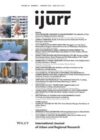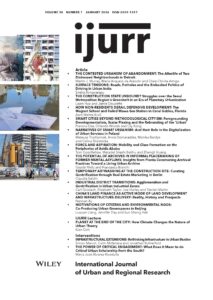Throughout the United States, the growth-focused policies of local governments have caused disruption and displacement in previously neglected and marginalized minority-dominated areas. Some communities have responded to these threats by embracing defensive development, proactively engaging in the economic regeneration of their neighborhoods to resist outsider-led gentrification. A largely unexplored question in this literature is how can non-resident stakeholders derail defensive development? Using data gathered through a qualitative case study of a historically Black and Bahamian neighborhood’s plan to secure a revenue-generating Wawa gas station, I found that the conversion of a community school to a magnet program posed challenges to defensive development. My findings reveal that because non-residents developed a sense of attachment to the school, they felt entitled to influence decisions about the area surrounding it. As school choice becomes increasingly popular, I argue that community-based organizers, policy makers and researchers need to consider how parents could potentially disrupt the neighborhoods in which their children attend school, not only in stymieing defensive development but also affecting other local land use decisions.
Details
Written by:
AARTI MEHTA-KROLL
Digital Object Identifier (DOI)
https://doi.org/10.1111/1468-2427.70011
About DOI

